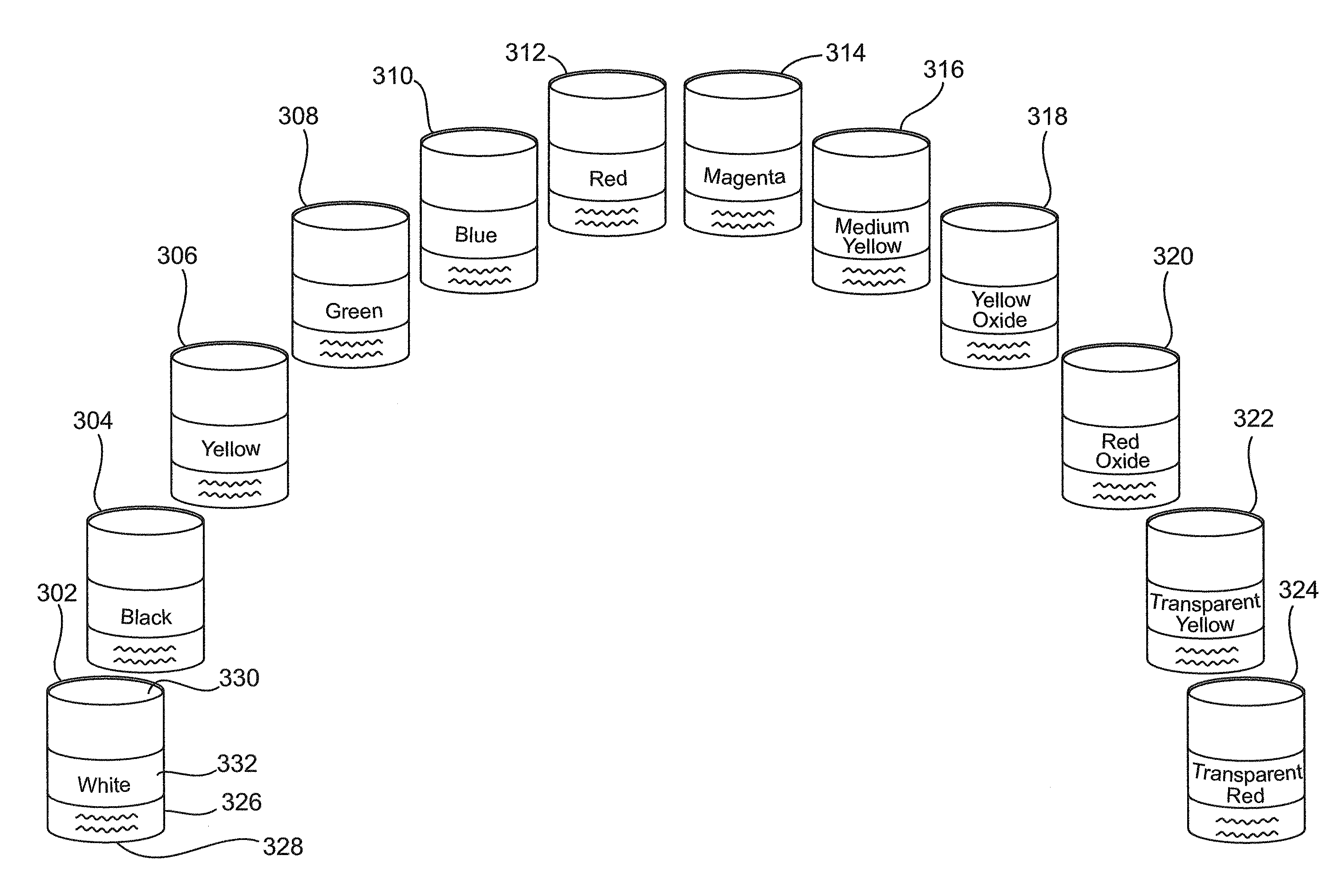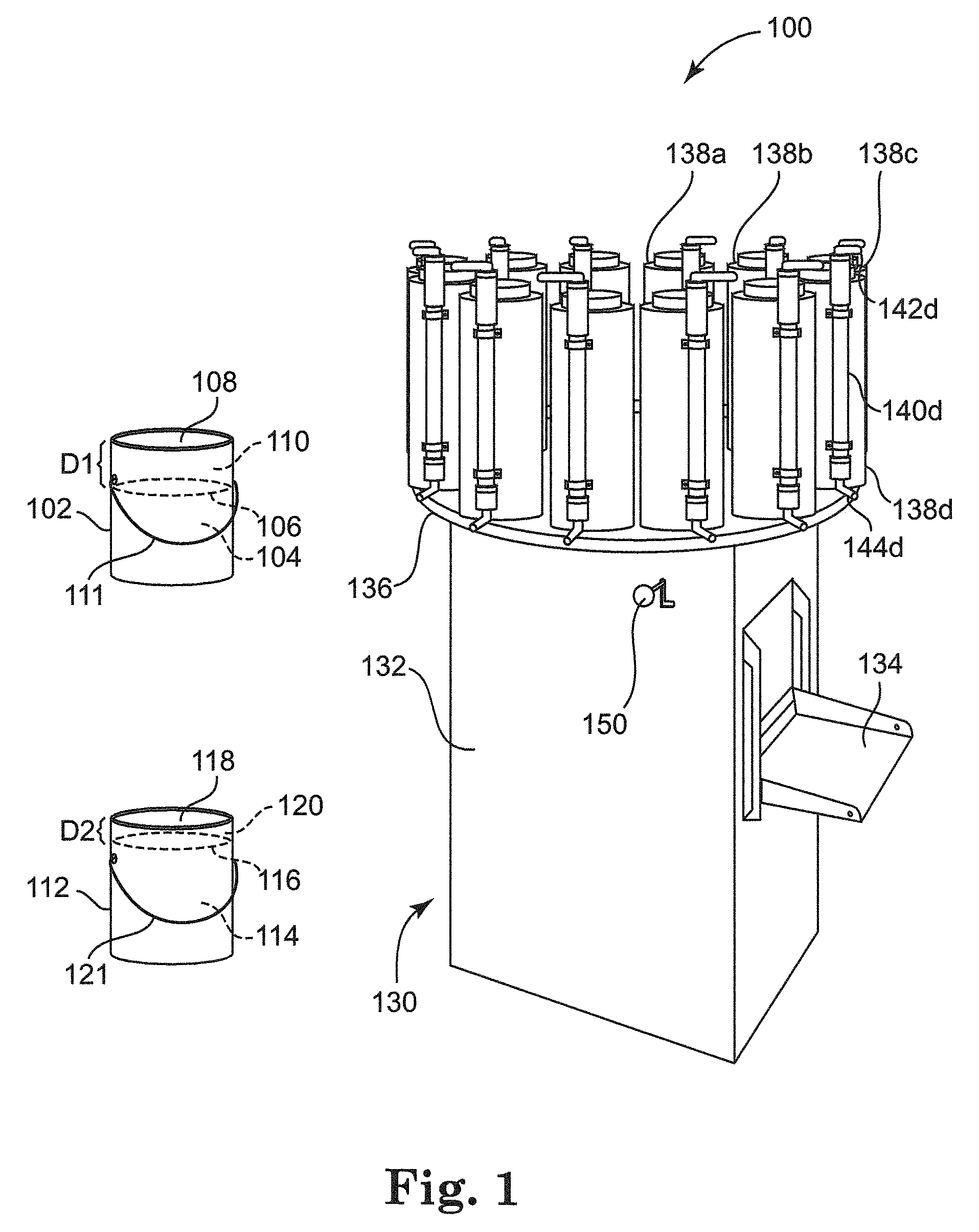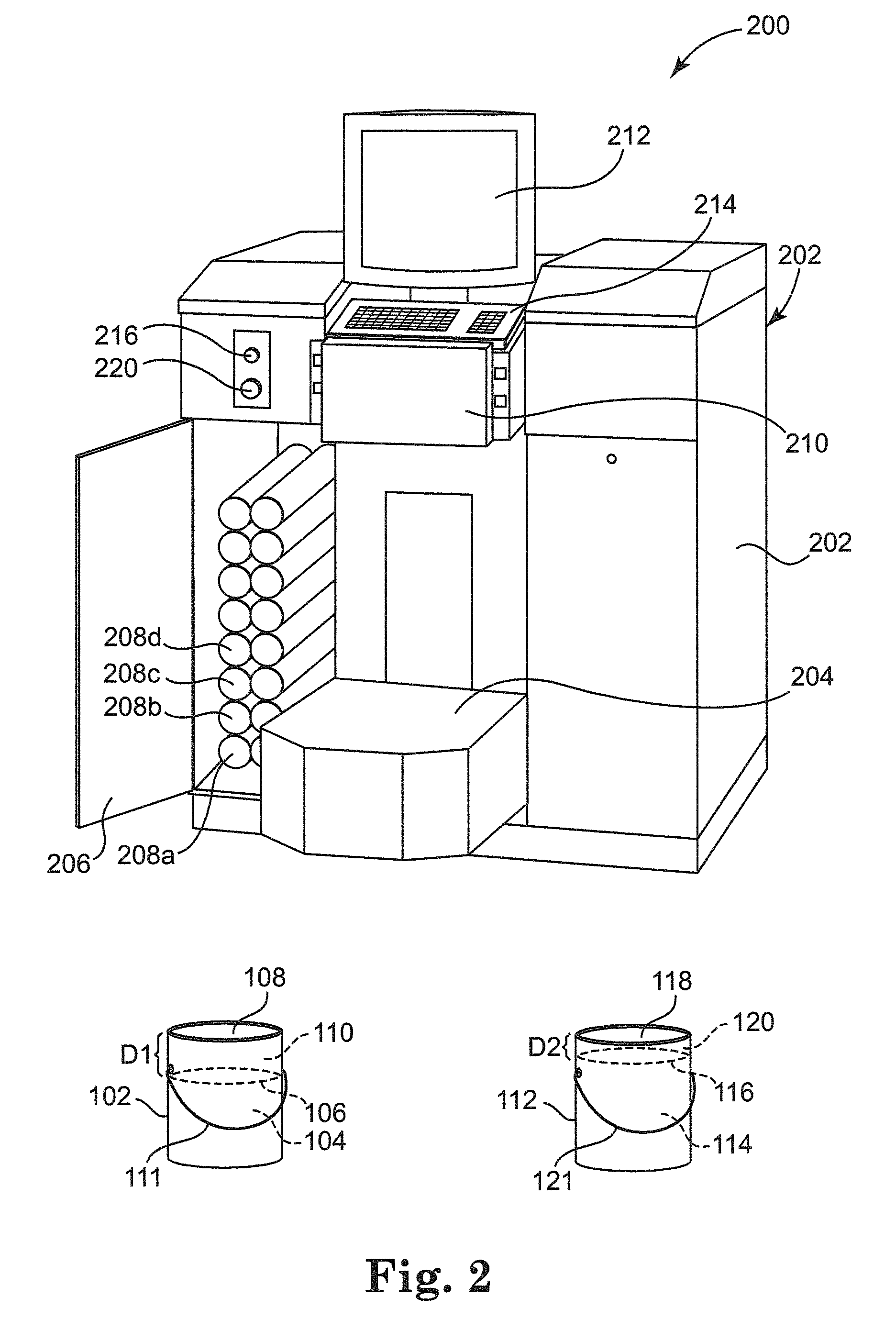Architectural paint and stain tinting system with tip drying resistance
a technology for architectural paint and stain tinting, which is applied in the direction of liquid transfer devices, aqueous dispersions, polishing compositions, etc., can solve the problems of orifice plugging and appear to have not been properly understood, and achieve high tinting, desirable resistance to blocking, and low voc levels
- Summary
- Abstract
- Description
- Claims
- Application Information
AI Technical Summary
Benefits of technology
Problems solved by technology
Method used
Image
Examples
examples
[0062]An 11 colorant array of low VOC colorants made according to U.S. Patent Application Publication No. US 2006 / 0207476 A1 to Coward et al. was evaluated using the Sand Trail Test in order to determine the colorant drying times. Set out below in Table 1 are the colorant identifiers, weight percent and volume percent prime pigment, weight percent and volume percent talc extender pigment, and the Sand Trail Test drying time for each colorant in the array:
[0063]
TABLE 1SandPrimeTrailPigmentTalcTime,Colorant (Product Code)Wt. %Vol. %Wt. %Vol. %hoursWhite (KX)55.526.56.54.0>24Yellow (AXN)14.012.829.214.41Medium Yellow (T)32.729.015.97.3Phthalo Green (D)11.57.328.914.1>7Phthalo Blue (E)6.86.139.520.11Red Oxide (F)56.922.76.34.8>24Organic Red (S)8.06.828.613.46Yellow Oxide (C)56.925.20.00.0>24Magenta (M)55.824.20.00.0Raw Umber (L)6.55.625.211.4Lamp Black (B)17.58.223.611.9>24
[0064]The results in Table 1 show that the although the array included four colorants whose Sand Trail Times were a...
PUM
| Property | Measurement | Unit |
|---|---|---|
| Tg | aaaaa | aaaaa |
| Tg | aaaaa | aaaaa |
| thickness | aaaaa | aaaaa |
Abstract
Description
Claims
Application Information
 Login to View More
Login to View More - R&D
- Intellectual Property
- Life Sciences
- Materials
- Tech Scout
- Unparalleled Data Quality
- Higher Quality Content
- 60% Fewer Hallucinations
Browse by: Latest US Patents, China's latest patents, Technical Efficacy Thesaurus, Application Domain, Technology Topic, Popular Technical Reports.
© 2025 PatSnap. All rights reserved.Legal|Privacy policy|Modern Slavery Act Transparency Statement|Sitemap|About US| Contact US: help@patsnap.com



